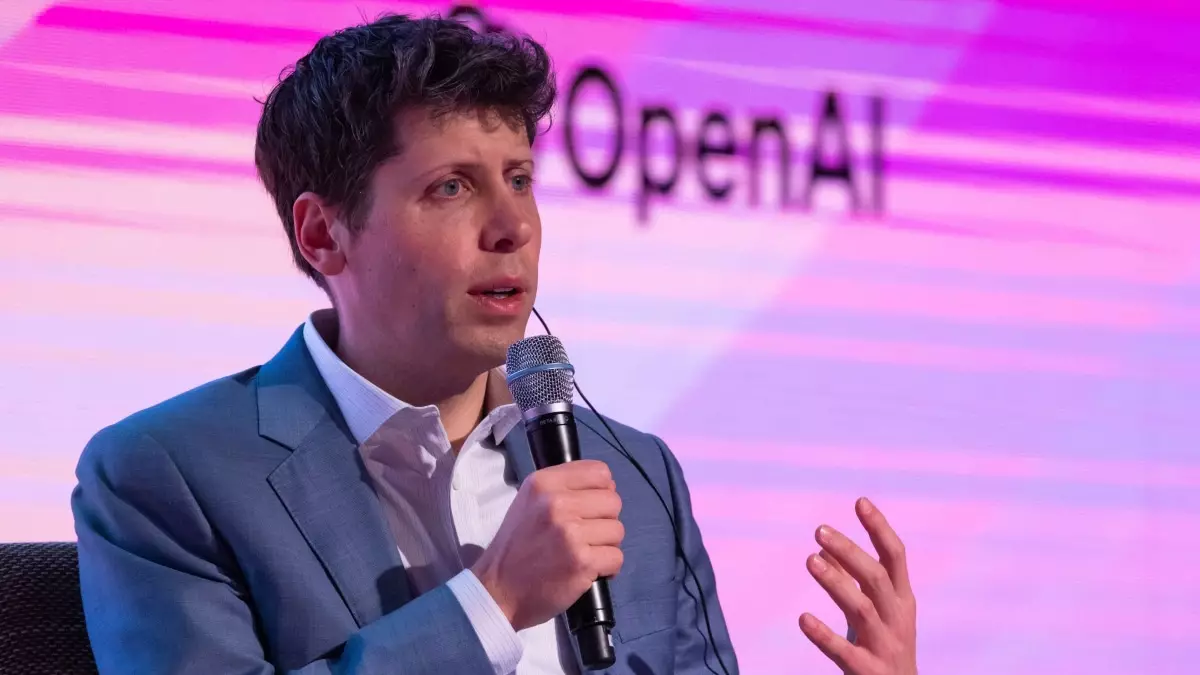The impending courtroom clash between Elon Musk and Sam Altman is not just a legal dispute; it’s a riveting saga that embodies the relentless competition and intricate dynamics of Silicon Valley. Scheduled for trial on March 16, this confrontation encapsulates the frictions between visionaries attempting to navigate the uncharted waters of artificial intelligence (AI). At the heart of this case is Musk’s assertion that OpenAI is straying from its noble roots as a benevolent entity into a realm of profit-driven motives—an allegation that could reshape the future landscape of the AI industry.
Federal Judge Yvonne Gonzalez Rogers’s decision to fast-track this trial marks a critical moment in a broader discussion over the ethical implications of AI. Instead of languishing in prolonged legal battles, the court’s efficiency signals the urgency of a resolution as both men operate at speeds that often leave traditional institutions lagging behind. This isn’t merely a battle between former associates; it’s a clash of ideologies: altruism versus capitalism, innovation versus exploitation.
Founders Torn Apart
Musk’s original vision with OpenAI—an organization dedicated to ensuring that artificial intelligence is developed safely and benefits all of humanity—now seems at odds with Altman’s approach, which has pivoted toward aggressive funding and commercialization. Musk’s departure from the board in 2018 and his subsequent criticisms raise questions about the ethical path companies like OpenAI should pursue. Can altruism authentically coexist with the bottom line? As OpenAI negotiates substantial investments, ostensibly to fuel its ambitions, one cannot help but wonder if profit has eclipsed purpose.
Musk argues that accepting billions from major corporations like Microsoft indicates a departure from OpenAI’s founding ethics. His recent ventures into AI, notably his establishment of xAI, signal not only competitiveness but a potentially personal stake in reorienting the AI narrative. Is this legal action genuinely about upholding ethical standards, or is it an ambitious entrepreneur seeking to undermine a competitor in his pursuit of a profitable alternative? The motivations pulsating beneath his accusations merit scrutiny, adding layers of complexity to this already tangled web.
The Stakes for OpenAI
OpenAI, for its part, vehemently rejects Musk’s claims, framing them as self-serving attempts to hinder a rival. The organization contends that its evolution into a for-profit model is essential for attracting the capital necessary to compete against tech titans. The court’s upcoming deliberation could direct the trajectory of this debate on a broader scale: Will we see a future in which AI companies can innovate responsibly, or will necessary financial backing invariably compromise their ethical foundation?
The timing of this trial also raises questions about the immediate operational decisions at OpenAI. As it transitions under the pressure of impending funding rounds, the specter of legal challenges looms large. Will the court’s ruling affect board decisions? Stakeholders poised to invest billions in AI startups have a vested interest in the outcome. A cautious approach may govern their actions as they await judicial clarity, unintentionally further complicating OpenAI’s restructuring ambitions.
Innovation at Risk?
The narrative is compounded by valuations that have soared beyond comprehension. OpenAI’s latest funding round sees its valuation nearly double. Yet, an unsettling tension arises. The consequences of failing to complete its restructuring by the end of 2025 could lead SoftBank, its leading backer, to retract substantial funds. The financial stakes are high, creating an environment ripe for reckless decision-making, where ethical considerations might be sidelined in the pursuit of rapid growth.
This legal spectacle is not just a personal vendetta; it serves as a bellwether for the future of responsible AI development. It forces us to confront uncomfortable questions: What obligations do these tech leaders have to society? Can innovations be birthed without compromise, and how can we ensure that they remain tools for humanity rather than mere revenue streams?
As Musk and Altman prepare for what promised to be more than just a clash of titans, the implications of their dispute ripple outward, inviting us as participants in this shared future to reevaluate the dynamics of power, purpose, and progress in one of the most transformative realms of modern technology.

Leave a Reply